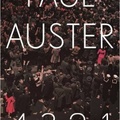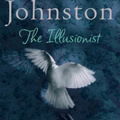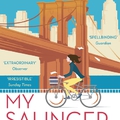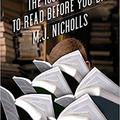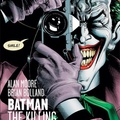Don DeLillo: Cosmopolis
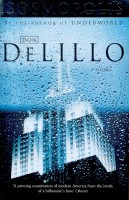
It happened a few years back that one of my teachers mentioned Don DeLillo’s name and his novel White Noise in an American literary seminar, and the title immediately grabbed my attention, so much so that I decided to read the novel as soon as possible, even though apart from its title, I did not know anything about it. As soon as possible became last year, when I finally acquired the book and read it, but it failed to live up to my expectations – though I did not really expect anything specific from it. After this experience, I did not force myself to read more from DeLillo for a while, but now I decided to give him one more try and read Cosmopolis, thinking that perhaps I have become more appreciative of his talents in the past year.
Cosmopolis tells the story of a day in April 2000, in Manhattan. The protagonist is Eric Packer, a twenty-something multimillionaire stock-broker who decides in the morning following a sleepless night that he must immediately drive to the other end of the city in order to have his hair cut. The journey takes longer than expected, as his white limo is continuously stopped either because of a presidential visit, a famous rapper’s funeral procession or a violent protest. Eric uses his free time in the limousine to get involved in shady stock-market deals in order to lose all his money, to get himself thoroughly examined by a doctor, to consult with various members of the his executive team and to have a few meals with his wife whom he runs into at various parts of the city. It is also revealed that Eric might be the target of an assassin, and the excitement and fear he feels because of this possibility becomes one of the main organizing forces of his day.
The novel is dedicated to Paul Auster and I thought this dedication to be absolutely justified when I was reading the first few, stunningly beautiful pages of the novel, I felt as if DeLillo had recreated Auster’s New York Trilogy without imitating it slavishly. The description of Eric’s insomnia and the city as it is waking up is simply marvelous and I could have continued reading about it for ages. But this was not to be, as Eric’s eventful day starts after a couple of pages and Cosmopolis slowly assumes the exact same qualities I did not like in White Noise: DeLillo wants to say too much too quickly – the novel runs to 200 pages only, and these 200 pages contain far too many events, written in a rather big font type and on smallish pages.
Through all the events outlined above, DeLillo offers his insights into the following topics: money and its use, big-city loneliness, alienation, sex, time and how it passes, death and the creative force of language – and I believe I might have omitted some themes from this list. DeLillo indeed does have something to say on all these topics, still, I often feel that he simply gets started on one topic, says something true, beautiful, thoughtful or witty, and then quickly goes on to the next theme, intoxicated by his own cleverness.
It is undeniable that there are some unique, bizarre or else eerily beautiful passages in the novel that will probably stick to my mind for a long time (e.g. the sex scene in the limo between Eric and his chief of finance, Jane; or the shooting of a movie Eric runs into towards the end of the novel), and I strongly regret the fact that the whole book cannot be as perfect as some of its parts. In conclusion, I have not become a much bigger fan of DeLillo now, and I think I will put him on the shelf again for a couple of years at least.
After I finished Cosmopolis, I read it somewhere that this novel is not usually supposed to be one of the best works of the author. However, I do not think it would have made much difference if I had chosen another book for my second go at DeLillo, say, Underworld, which is considered to be one of his masterpieces. I assume I came to know DeLillo’s style, language and his major themes by reading White Noise and Cosmopolis, and I admit that he writes about important topics in quite a good and sometimes piercing and beautiful language, but still, I do not feel myself at home in his world and I cannot love his work. Perhaps simply I am not his intended reader after all.

